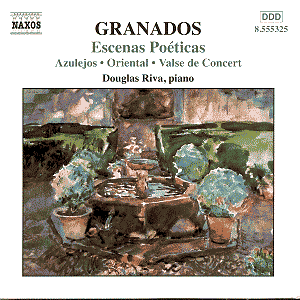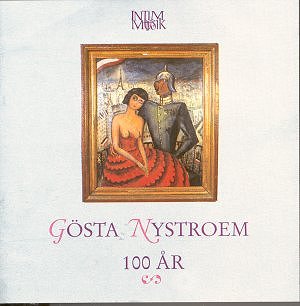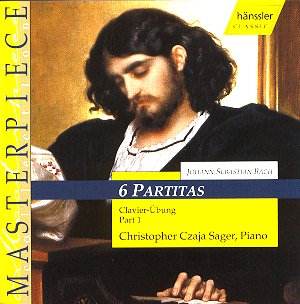 Composer: Enrique Granados
Composer: Enrique Granados
Works: Azulejos (Isaac Albéniz, completed by Granados), Valse de Concert, A la pradera, Escenas poéticas, Fantasía – Cheherezada, Arabesca, Canción árabe, Moresque, Canción morisca, Oriental – Theme with variations, Intermezzo, Finale
Performers: Douglas Riva (piano)
Recording: Potton Hall, Dunwich, Suffolk, June 2000
Label: NAXOS
Enrique Granados, a pivotal figure in the early 20th-century Spanish music scene, imbued his compositions with the rich cultural tapestry of his homeland. This fifth volume of his piano music, performed by Douglas Riva, continues Naxos’s commendable series that seeks to illuminate Granados’s lesser-known works alongside his more familiar pieces. Notably, this recording includes three world premiere recordings, contributing to the ongoing exploration of Granados’s oeuvre. The works presented, primarily from the latter part of Granados’s life, reflect his evolving style, which was increasingly influenced by the complexities of the European musical landscape, particularly the romanticism of composers such as Schumann and the impressionism of Debussy.
Riva’s performance of the Valse de Concert is spirited, capturing the vivacity that Granados intended, yet it occasionally falls into the trap of overly calculated rubato, which may disrupt the natural flow of the music. The piece, composed around 1914, serves as a testament to Granados’s late romantic stylistic maturity. Riva’s articulation brings life to the piece’s rhythmic intricacies but could benefit from a more intuitive approach to tempo fluctuations, allowing the inherent charm of the waltz to unfold more organically.
The Escenas poéticas are a highlight of this recording, showcasing Granados’s ability to blend narrative with musical form. Riva describes the fifth piece, “El ángel de los claustros,” as an angelic flight interrupted by a chorale. While Riva’s interpretation is earnest, his tempo choices tend to dull the piece’s ethereal qualities. The fourth of the cycle, noted by Riva as Schumann-influenced, offers a more compelling argument for Granados’s debt to the German master, particularly in the finale, “Suenos del poeta,” which resonates with dreamlike motifs that evoke Schumann’s imaginative landscapes. Here, Riva’s touch is sensitive, yet the execution lacks the necessary dynamic contrast to fully realize the work’s emotional range.
The final trio of premieres draws on an “Oriental” style that, while intriguing, feels somewhat lightweight compared to the earlier pieces. These works flirt with exoticism and pedagogical simplicity, merging entertainment with a hint of cultural homage. They are charming in their own right but do not resonate with the depth found in Granados’s more substantial compositions.
The recording quality is satisfactory, though it lacks the warmth and ambiance one might hope for in the evocative nature of Granados’s music. The sound can feel somewhat airless, failing to capture the piano’s full resonance and subtleties. This may detract from the listener’s experience, especially when compared to other recordings that provide a more immersive listening environment.
Douglas Riva’s interpretative choices and technical facility are commendable, but they sometimes obscure the nuanced beauty inherent in Granados’s scores. The juxtaposition of his energetic playing against moments of deliberate restraint creates a complex listening experience, though it may not entirely satisfy those seeking a deeper emotional connection with the music. This volume, while a valuable addition to the catalog of Granados’s piano music, ultimately leaves one yearning for a more profound realization of the composer’s artistic vision.



